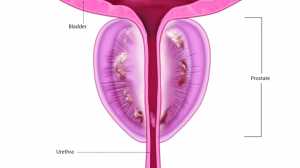Allergies, Author Interviews, NEJM, Pediatrics / 11.02.2025
Mount Sinai Study Emphasizes Importance of Personalizing Peanut Allergy Immunotherapy in Children
Editor's note: Do not attempt immunotherapy for peanut or other allergens without the express direction of your health care provider. Life-threatening reactions may occur.
MedicalResearch.com Interview with:
Scott H. Sicherer, MD
Elliot and Roslyn Jaffe Professor of Pediatrics, Allergy and Immunology
Director, Jaffe Food Allergy Institute
Division Chief, Pediatric Allergy
Medical Director, Clinical Research Unit
Icahn School of Medicine at Mount Sinai
Jack and Lucy Clark Department of Pediatrics
Mount Sinai Kravis Children’s Hospital
New York, NY 10029
MedicalResearch.com: What is the background for this study?
Response: About 2% of people have a peanut allergy. While many of them are exquisitely allergic to tiny amounts, about half can tolerate a half a peanut kernel or more before they have symptoms, although the symptoms can be severe.
Current studies and FDA approved treatments for peanut allergy have typically focused on people reacting to about half a peanut or less. We thought that those with higher threshold may be more easily treated.
We focused on children ages 4-14 years who we identified through a medically supervised feeding test as having allergic reactions from 443 to 5043 mg of peanut protein. A peanut kernel is about 250 mg of peanut protein. The 73 children were randomized to a treatment (oral immunotherapy, OIT) using home-measured, store bought peanut butter versus continuing the standard of care, avoidance. OIT involves medically supervised dosing going from a small amount to gradually increasing larger amounts. The increases are done under direct allergist supervision, then the tolerated dose is taken at home daily. Families are given instructions about avoiding things that can cause a reaction from dosing, such as exercise after a dose, and to skip dosing for illness. Dosing can cause reactions and they were instructed on how to recognize and treat any such reactions. We did increases every 2 months.
Most of the children (62) stayed in the study to be tested after the period of treatment, that aimed for having a level tablespoon of peanut butter each day. All of the treated children who completed testing (32) were able to eat 9 grams of peanut. Only 3 of 30 who continued to avoid peanut were able to do this.
(more…)



